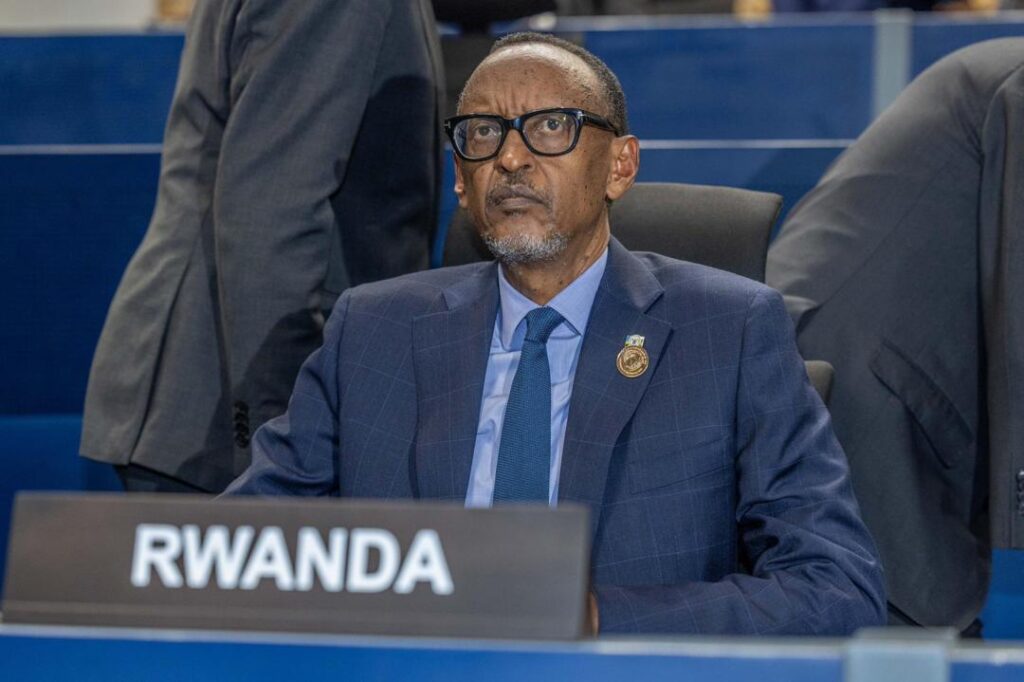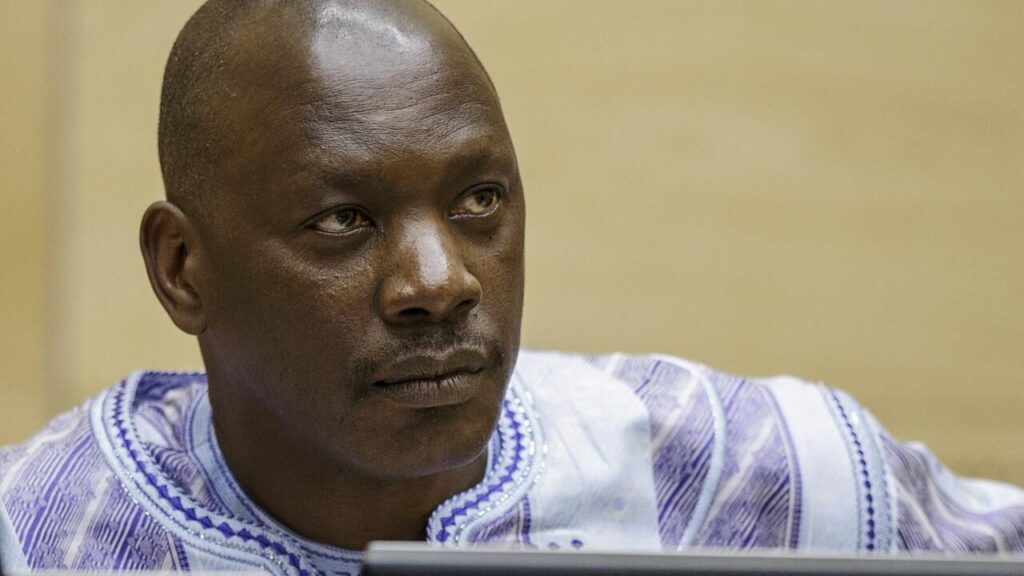“Power does not corrupt. Fear corrupts… perhaps the fear of a loss of power.” — John Steinbeck
When Jean-Pierre Bemba returned to the Congolese political stage after a decade-long legal battle at the International Criminal Court (ICC), culminating in his dramatic acquittal in 2018, many hoped his warrior reputation and political experience would translate into effective governance.Instead, today, Bemba walks the corridors of power like a man who no longer knows what to do with the keys he has been handed. He holds a “seat at the table,” yet has seemingly little to offer. His recent reassignment to the Ministry of Transport has only further exposed the growing gap between political symbolism and effective leadership in Congolese governance.
This article explores Jean-Pierre Bemba’s trajectory; from a powerful opposition figure to an ineffective leader presiding over two of the DRC’s most strategic ministries. It also examines the political calculations behind his appointments and why his continued presence in government now feels more symbolic than substantive.
From Warrior to Bureaucrat: A Misfit in the System?
Jean-Pierre Bemba’s political reputation was forged in the crucible of rebellion and resistance. As the leader of the Movement for the Liberation of Congo (MLC), he was seen as a nationalist strongman capable of tough decisions. His return to high office in 2023, however, was greeted with cautious optimism.
During his tenure as Minister of Defense (March 2023 – May 2024), many expected Bemba’s military background to strengthen the Congolese army (FARDC) against the AFC/M23 rebel coalition. Instead, under his leadership, the FARDC suffered repeated defeats, losing key territories and trade routes to the rebels. Procurement scandals, poor coordination, and questionable drone deals worth over $500 million marred his ministry’s record. It was not just a military failure ;it was a collapse of strategy, oversight, and leadership.
One would think such a record would disqualify him from further responsibility. But in the DRC; especially under President Félix Tshisekedi’s administration; failure often carries little consequence. Instead of sidelining Bemba, Tshisekedi shuffled him into another high-profile position: Deputy Prime Minister and Minister of Transport and Communication Channels.
Bemba clings to his proximity to power, often seen next to Tshisekedi during international visits and national broadcasts, as if to remind the public of his continued relevance. But the truth is hard to ignore: Bemba has lost his edge, his credibility, and the trust of a population that once revered him as a man of action.
Minister of Transport: Power Without Purpose
The Transport Ministry in the DRC is no ceremonial role. It oversees road networks, river navigation, air safety, and railway infrastructure; vital lifelines for a nation the size of Western Europe. Mobility is critical not only for governance but for trade, humanitarian access, and national cohesion.Yet, under Bemba’s leadership, the sector has plunged deeper into dysfunction. Roads remain impassable, river transport grows deadlier, and air travel remains erratic and poorly regulated.
In April 2025, the nation mourned another preventable disaster: the incineration of the HB Kokolo, a wooden boat in Mbandaka, which left over 100 dead and more than 150 missing. Days later, another boat capsized between Brazzaville and Kinshasa, claiming even more lives.
Bemba’s reaction? A recycled statement referencing an outdated memo issued months earlier; a gesture that underscored his detachment from the sector’s realities and his inability to pivot from policymaking to real problem-solving.
In functioning democracies, major transport disasters typically trigger resignations, investigations, and sweeping reforms. In the DRC, they generate hashtags, condolences, and recycled speeches.But here lies the deeper question: Was Bemba ever appointed to lead, or merely to serve as a political figurehead?
Political Posturing Over Public Service
Bemba’s continued presence in government appears less about governance and more about political utility. His longstanding antagonism toward former President Joseph Kabila serves Tshisekedi’s interests in diminishing Kabila’s lingering influence. As long as Bemba remains a vocal opponent of Kabila, his seat in the cabinet seems secure; regardless of his performance.
Yet the Transport Ministry demands technical expertise in logistics, infrastructure development, and national planning ;not political heavyweight credentials. Instead, it has become yet another ministry reduced to a consolation prize in the politics of coalition-building.
Rather than focusing on transportation reform, Bemba has invested more energy in political posturing: aligning himself with Tshisekedi, attending state functions, and openly criticizing former allies like Joseph Kabila and Moïse Katumbi. His behavior increasingly resembles that of an unofficial vice president, commenting on defense and youth mobilization while neglecting the crumbling transport sector under his charge.Even basic administrative functions; such as the issuance of driver’s licenses ; are plagued by delays, corruption, and inefficiency under his watch.
Critics have not remained silent. Patrick Kanga, a political figure associated with the People’s Party for Reconstruction and Democracy (PPRD), recently lamented:
“The life of every Congolese is sacred… yet no responsible action has been taken. No solution, no accountability. Meanwhile, it’s the people who continue to suffer.”
A Sector Screaming for Reform
The DRC’s transport sector is not failing solely because of Bemba’s shortcomings. It is the victim of a broader systemic failure: the politicization of technical ministries. The Transport Ministry; critical for trade, humanitarian work, and national unity ; should be led by qualified professionals, not by politicians recycled from one failure to another.
The consequences are deadly: impassable roads, crumbling ports, unsafe ferries, absent railway systems, and prohibitively expensive air travel. In a country with Congo’s vast distances and abundant resources, the absence of reliable transportation stifles commerce, isolates communities, and impedes development.
Addressing Counterarguments
Some defenders of Bemba argue that he inherited a broken system and cannot be blamed for decades of neglect. While this is partially true, leadership is tested in crisis ; and Bemba has consistently failed to deliver even minimal improvements or to show a sense of urgency.
Others point to recent international transport agreements he has signed as signs of progress. However, critics and much of the Congolese public know that many of these deals come with “retro-commissions” , backdoor fees that enrich a few while leaving the nation to languish.
What’s at Stake?
The stakes for the DRC could not be higher. A functional transport system is the backbone of national development. Without it, economic growth stalls, regional integration fails, healthcare access collapses, and national unity disintegrates.
Today, more than ever, The Democratic republic of Congo needs leaders who understand that governance is not about appearances or alliances; it is about service, competence, and accountability.
Conclusion: A Call for Meritocracy, Not Mythology
Jean-Pierre Bemba’s once-powerful legacy is not enough to govern a nation. His continued presence in key ministries, despite repeated failures, highlights a governance culture that prioritizes political alliances over effective service delivery.
In a country as vast, diverse, and fragile as the DRC, this approach is not just unsustainable; it is dangerous.The Transport Ministry needs a technocrat, not a tactician. Congo needs a new generation of leaders who view power as a responsibility, not as an entitlement. The time for symbolism must end; the time for substance must begin.
Every Congolese life lost to preventable transport disasters is a tragic reminder of the cost of mediocrity. Future administrations must prioritize competence over loyalty. Parliament must begin holding ministers accountable. Civil society must continue to amplify the voices of victims.
If the DRC is to rise, it must stop rewarding those who merely sit at the table. It must begin empowering those who are ready to build a better future.


